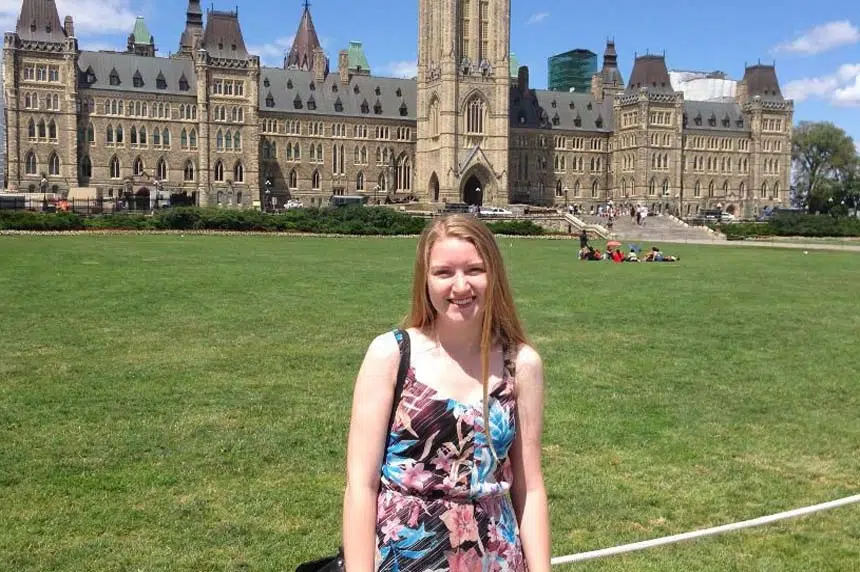By Rebbeca Marroquin
A Beauval, Sask. woman wants the Canadian government to cover an expensive drug for her cystic fibrosis.
Every day, Christie Brizinski, 20, takes around 20 pills and vitamins to help her digest food. She also uses nebulizers and physio therapy sessions to clear her lungs so she can breathe.
At just three months old, Brizinski was diagnosed.
According to Cystic Fibrosis Canada, the disease is inherited and causes mucus in the lungs to block airways over time. Around six months ago, Brizinski made a visit to her doctor’s office, who said her lung function was declining, despite all the medication she was taking.
“I can only use 40 per cent of my lungs,” she said.
Brizinski said her doctor recommended a drug called Orkambi, which could slow or stop progression of the disease, but it is not covered in Canada and has a $250,000 price tag.
“[Orkambi] would pretty much better my life and lengthen my life more than a lung transplant ever could,” she said.
Brizinski contacted the manufacturer of the drug, who said they could provide the drug if a private insurer would cover partial charges. Unfortunately, Brizinski’s insurer could not provide assistance.
“It’s so frustrating,” she said.
With no other options on the table, Brizinski is pressuring the government to fund the costs of the drug. She partnered with Cystic Fibrosis Canada to create a petition.
“Once this thing gets started in Saskatchewan we would be the leaders in Canada for getting this started,” she said. “I’m not just doing it for myself.”
Why isn’t the drug covered?
Dr. John Wallenburg, Chief Scientific Officer of Cystic Fibrosis Canada, said the drug isn’t covered in Canada because it got a negative recommendation from Canadian Agency for Drugs and Technologies (CADTH), a body set up by the government to review drugs.
The process to give the drugs any sort of recommendation is complex, but Dr. Wallenburg summarized that although CADTH recognized Orkambi’s medical benefit, it did not impact enough people, and therefore was not sufficiently important.
“I don’t believe that it’s correct to punish individuals who would benefit from a drug just because there are some people who would not,” Wallenburg said.
He said multiple randomized clinical trials involving over 1,000 patients with cystic fibrosis showed Orkambi was effective and showed an increase in breathing.
He said unfortunately, with a negative recommendation from CADTH “there was no path forward.”
An emailed statement to paNOW from the Saskatchewan Ministry of Health said: “After careful consideration of the clinical evidence, as well as the cost information, the Canadian Drug Expert Committee (CDEC) recommended Orkambi not to be reimbursed for public funding.”
“Should the manufacturer have new data that addresses the concerns of CDEC, it may seek reconsideration through the Health Technology Assessment process.”











